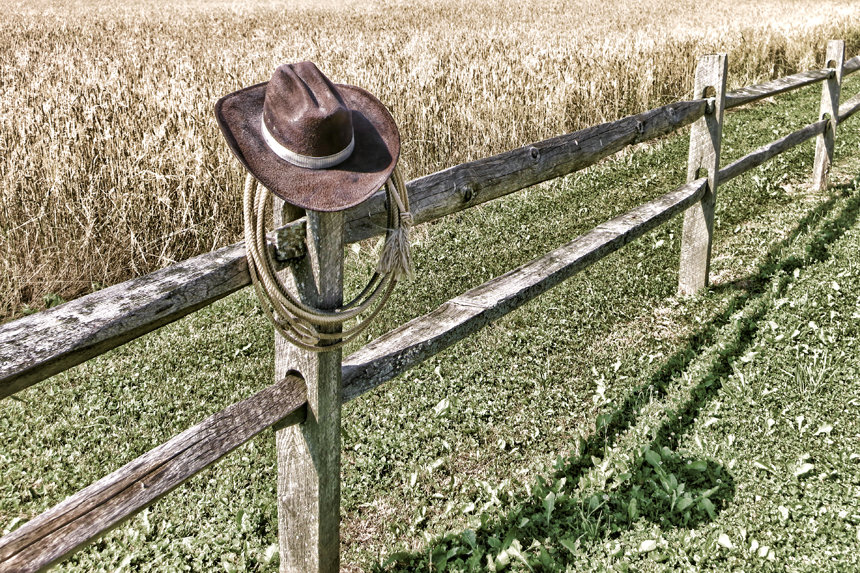Doug squinted at the small print on the canned tomatoes, scanning for words that would get him in trouble with Lorraine. He dreaded grocery shopping. All the aisles jammed with unfamiliar and, worse, similar products. Last week he’d brought home petite diced tomatoes, but they’d contained chili peppers, and Lorraine practically had a fit about her delicate cannelloni sauce. He’d had to go back. The grocery list itself had evolved from bulleted nouns to complex paragraphs about each item. Toilet paper turned into Cottonelle which turned into Cottonelle with aloe, which turned into Cottonelle with aloe the green package, which finally turned into Cottonelle with aloe the green package jumbo size unless the small size is on sale then buy four packages.
And apples. Used to be a choice between red and green. Now he searched among a dozen varieties for the Pink Lady type Lorraine preferred. All of the apples tasted the same to him. Eating apples at lunch reminded him of his mom bagging his lunch in elementary school. Lunch with Lorraine made him feel like a kid, unwanted at home during school hours. Slightly incompetent. Often naughty, not in that R-rated way, but in a didn’t-tie-the-twisty-thing-back-on-the-bread way. Doug missed lunches out with the boys at work. Club sandwiches with fries. Conversations about the basketball playoffs. Now he listened to Lorraine’s gossip about the ladies in her Pilates class while enduring her steely-eyed judgment if he dared request a few potato chips.
Lorraine treated him like another home improvement project, feeding him salads or sliced fruit with ham on whole wheat, and nagging him about his heart health. He didn’t mind walking the dog in the mornings, even though he hated picking up the hot squirts of crap, and often left it lying in the neighbor’s grass, especially if the dog deposited a pile in Miller’s yard. That guy put up the wrong political signs.
Doug tossed two cans of petite diced tomatoes with garlic and onion (hoping that would be okay) into his basket and headed to the pasta aisle, reminding himself not to accidentally select gluten-free. He checked the list: spaghetti, regular, not thick, not thin, not the store brand, even if it’s on sale, not whole wheat, not gluten-free, preferably Barilla brand, unless there’s a better sale, but not the store brand.
Three months ago, he had managed an entire department, making decisions that mattered to hundreds of employees.
All the noodles tasted the same, too.
Doug worked his way through the store, slowly, checking and double-checking his list. Dishwasher tabs, Finish Brand, Quantum-style, jumbo pack, not individually wrapped. He’d gone off-list in the pet food aisle, choosing a rawhide bone for Muffin. It bothered him that the darn dog preferred Lorraine. Reminded him too much of how it used to be with the kids. Something about Lorraine’s easy relationships with Michael and Julia made him feel like an outsider. The frequency of Julia’s phone calls to Lorraine continued to surprise him, although he’d never bothered to ask how Lorraine kept up on the minutiae of the grandkids’ lives: soccer games, sniffles, spelling bees, lost teeth. Lorraine talked so much, he couldn’t keep up with it all. He missed shutting his office door, propping his feet on his desk, and doing absolutely nothing, no questions asked. Now Lorraine fretted about every quiet moment.
“What are you up to in there?” she’d holler as if he might be finger painting on the walls or dropping weird things into the toilet.
Doug scanned the checkout lines, searching for friendly young checkers and avoiding any of the bag “boys” pushing 70. Last week he’d suffered the humiliation of having old Bill Bronson pack up his groceries. Bill put a good face on the situation: Just getting out of the house, heh-heh. At home, Lorraine had gleefully gossiped about how the Bronsons’ youngest boy got a divorce because of his gambling problem.
“Imagine! Forty-two years old, living in his parents’ rec room, and sending his dad off to bag groceries like a high school kid!”
The situation resembled something Lorraine would watch on Dr. Phil.
Doug despised that guy with his loud voice, folksy phoniness, shaming people for their horrible depressing problems. He’d taken to watching a variety of home improvement shows on the basement TV, enjoying each episode’s soothing pattern: find flaws, destroy flaws, deal with difficulties, rebuild the whole thing shiny and new. Sometimes he allowed himself a bit of melancholy indulgence to think about how corporate “restructuring” had taken a sledgehammer to his own life. He’d planned to work for a few more years — at least. Maybe he was the oldest guy in the department, but he wasn’t incompetent. Sometimes he’d been the only one who knew how to get something done. Maybe he didn’t hear too good anymore. But he could still think. No reason to make him quit early. Just give him a pay cut. That would’ve been fine. The thought of grocery shopping and watching TV for the next two — three? — decades of his life, well, talk about wanting to take a sledgehammer to things.
Doug packed the grocery bags into the trunk, vaguely guessing which items he’d likely gotten wrong. The canned tomatoes. The head of lettuce: Boston, Bibb, Butter? Even the cheerful young checker had been confused about that one and needed help finding its numerical code.
Doug needed to do something more.
* * *
Since the week he retired, Lorraine had been clipping things out of the paper to inspire him — that’s what she said, anyway. Last week he blinked up at her and asked if she really wanted him to go live in the Middle East and work at a refugee camp? Wouldn’t he need a medical degree to be a doctor, with or without borders? He knew that she wanted him out of the house. Every time he returned from the grocery store, he felt like an intruder as Lorraine jumped up and moved about as if she’d been busy all along. He’d long suspected that she hadn’t made the most productive use of her time. Housework bored her. They had an unspoken agreement not to mention the fact that the kids had been living on their own in different states for more than two decades. Lorraine did what needed doing, as she called it in her daily reports to him over dinner. She’d made a special effort to cook all of Doug’s favorite meals, often calling him at work midday so she could satisfy his current cravings. And she served on the local library board. That required meetings. Lorraine met friends for lunch every Wednesday, played Bunco on Thursday afternoons. Read a novel every month for her book club.
Lately she seemed to feel guilty for enjoying her life so much, bemoaning the fact that he’d spent his life working in an office. But he loved the office! Loved having tasks and deadlines and performance reviews. Loved the little bits of personal information shared among colleagues. Loved going out to lunch. Oh, how he missed the cute waitress at Roosters on 25th Street. Loved the company golf tournament.
Doug never begrudged Lorraine her lifestyle. He had no desire to stay home watching Dr. Phil before going to lunch with the likes of Barbara Hinton and Laura Maxwell. But he couldn’t spend the rest of his life — 20 or more years, possibly — watching rotting floor boards being replaced with sturdy tiles on TV. And he wasn’t too interested in performing actual improvements on their home. Never really learned how. Couldn’t imagine meeting Lorraine’s standards of perfection, the endless nagging and do-overs. She hired a handyman for that sort of thing anyway.
* * *
A few weeks later, Lorraine dropped a newspaper clipping onto Doug’s lap. The Park Service needed volunteers out at the Fielding Garr Ranch on Antelope Island. Initially Doug protested. Suggested that he remodel the basement, adding a guest room for Julia and the kids.
“Why would the kids want to stay in our basement?” Lorraine shook her head as if ridding herself of the image in her brain. “The kids want to swim in a hotel pool! And you can barely change a light bulb!”
Doug acquiesced. He’d started to prefer cooking competition shows anyway. The kitchen had been remodeled three years ago, and Lorraine never let him anywhere near it. Didn’t even trust him to put the groceries away. Now it seemed she literally wanted to put him out to pasture, standing out in the dry grass with the scruffy remnants of a once great bison population.
Antelope Island squats in the middle of The Great Salt Lake, a shallow stinking body of water packed with brine shrimp, flocks of migrating birds — and tourists. Most people came to see the herd of several hundred bison that roam free as if on the set of an old Western. Doug worked Tuesdays and Thursdays at the Fielding Garr Ranch, an abandoned homestead with shady picnic grounds at the end of the eastern road. The soaring Wasatch Mountains reflected in the lake water attracted photographers. Most visitors to the island ended up at the ranch, touring the barn crammed with rusty farm equipment, gaping into the spring-fed cold cellar, and walking through the patched-together house with its odd combination of old and newer furnishing. Those home improvement fellows would relish ramming their sledgehammers into all that mismatched linoleum.
Most days Doug kicked his toes into the dust, wandered around, quieted by the quiet — he could never quite describe the sensation to Lorraine. The isolation. The immense separation created between the shallow swath of water and the corridor of two million people.
“But aren’t there birds? Isn’t it windy? Visitors come every day, don’t they?” Lorraine asked.
He didn’t want to tell her — admit? — how he resented the time to think.
Think about how the future felt empty, quiet.
Often he’d contrast his office-bound suburban life with the brave pioneers who scratched a living out here on the ranch, raising sheep, fending off coyotes, loneliness. He found himself romanticizing the pioneers as people fighting for ideas, religious freedom, true ownership of a patch of the Earth.
Doug figured he’d never fought for anything in life.
Didn’t even run for student body vice president after he found out he’d be going up against — couldn’t remember the kid’s name — but he was a Big Man On Campus as they used to say. Doug had done well in school, as he recalled, but didn’t think too hard about college. Not the way Julia had insisted upon going back East for school, rarely coming home, falling in love with a kid from Boston, working, marrying, rarely coming home. Julia pioneered her own life. Even Michael’s meandering path ended with graduate school, a good job with the Department of Ecology in Washington State.
Doug had stuck close to home, attended Weber State University, majored in business, why not? He hadn’t even really chosen Lorraine — she’d pursued him. Figured he couldn’t do much better, and watching some of his friends, saw that he could do much worse. Doug had done all the things a man’s supposed to do. Work, buy a house, new cars every ten or so years, vacations to Disneyland, camping up at Bear Lake or Yellowstone. Never thought about where he’d end up.
Tuesdays and Thursdays on Antelope Island. Babysitting tourists.
Spring arrived along with swarms of tiny biting flies. No-see-ums. Doug bought himself a cowboy hat to protect his scalp from the insects. Wore a thick chambray shirt, heavy jeans, boots. Flies still managed to find his flesh. Couldn’t believe that he volunteered to stand out here, being eaten alive one bite at a time.
May brought more flies and more field trips. Elementary school kids sped around the ranch as if channeling the sun’s energy; teenagers grouped together in twos and threes like bison before rutting season. Athletic boys wolfed down sandwiches and sodas, while the girls flitted like nesting sparrows — Doug knew that Julia would want him to see the girls from a more feminist perspective — but he couldn’t get past their screeching voices, the frenetic preening. There were always a couple of lone coyotes: greasy boys in dark coats. Doug often watched the kids, enjoying the minor dramas and dilemmas playing out. But whenever he started to say something about his observations to Lorraine, she’d interrupt — oh, that reminds me, Brayden might need to have his tonsils removed. Before the end of the school year. Can you imagine? That would set Lorraine off on a 20-minute monologue of newsy bits of gossip about various neighbors, and what did Doug really expect? That had been their conversation pattern for years. He’d rarely talked about work; after all, Lorraine didn’t know many of his coworkers, and Doug didn’t want to fill in back story with every anecdote. So he listened, nodded, and grunted while Lorraine blustered forth like wind that brings rain.
He had never felt more silenced. Separate. Uninteresting.
* * *
Every week it surprised Doug how people from around the whole world visited the abandoned ranch on the arid island, studded with an odd population of bison, in the middle of an ancient fetid lake. Japanese came with cameras. Germans with walking sticks. Retirees from all 50 states sliced across the parking spaces in huge RVs. Doug began to report his day’s events in a list-like manner to Lorraine: eighth graders, a couple from Pittsburgh, homeschoolers doing a report. He occasionally found a few gems — like the little kid who pointed to the snowcapped mountains and shouted, look at all that salt! Lorraine laughed, politely, but then told a better anecdote about Mikki’s day in kindergarten.
Doug saw that he bored his wife, and maybe he’d bored her for years. Or worse, maybe she bored him. Everything she talked about happened to other people, sometimes she even talked about the sad-sacks on Dr. Phil as if they were personally acquainted. A gap had appeared between what they had in common and the lives they now lived. No more of Michael’s soccer games, Julia’s dance recitals, fears over the kids’ behavior, grades, friendships. Sure they still talked about the kids, and now the much less stressful grandkids, but Lorraine made sure that she owned the information. She communicated with Julia and Michael, and Michael’s wife. She doled out the information like pieces of hard candy. Doug merely nodded or shook his head, depending upon the mood required. He loved his kids, grandkids, of course, but he didn’t really know them in his own way.
Nothing felt like his own anymore.
* * *
One hot day in June, Doug braved the few remaining biting flies and hung his hat on the fencepost as he stood waiting to greet tourists. A group of teenagers on an early summer picnic sat at a nearby table tossing grapes into each other’s mouths. A half-dozen cyclists turned around in the parking lot heading back toward the causeway. Doug stared after them wondering what demons possessed a man so that he wanted to pump his legs ceaselessly up and down hills in this searing heat. That’s when the tourist bus pulled into the upper parking lot.
Dozens of Chinese women in cloth trousers and Zion’s National Park T-shirts poured out of the bus. He watched them patiently wait in line for the small women’s restroom near the parking lot. Some cultures didn’t mind waiting. Not like Americans.
Doug welcomed the first group of women with a friendly wave. He didn’t expect much conversation, but he sure wished he’d had the language skills to ask one of them what the heck had brought them out to the empty deserts of the American Southwest. Since they had the money to travel, why not Paris? The Canals of Venice? Hawaii? Doug thought of the destinations he’d probably never see outside of photographs. Maybe if he’d been able to work a few more years. But who was he kidding with those thoughts? He had to retire. The work had grown complicated. Too many new systems. Too many young people who could learn those systems in hours, not days or, admittedly, weeks.
And this wasn’t so bad, was it?
An older woman approached him, meek and tentative. A heavy camera hung around her neck. Doug smiled, greeted her with a hearty, “Howdy, little lady.” Why not? The woman grinned, pleased with his folksy friendliness. She pointed at the cowboy hat hanging on the fencepost, gestured to her own head, then Doug’s head. “You want me to wear my hat?” Shrugging, he plopped the cowboy hat onto his head.
“John Wayne! John Wayne!”
Chinese women swarmed Doug.
“John Wayne! John Wayne!”
Camera shutters clicked and clicked. Took almost an hour to take photos with each individual woman, groups of friends, phone selfies. But, oh, did he finally have a great story to tell Lorraine!
Become a Saturday Evening Post member and enjoy unlimited access. Subscribe now




Comments
Nice story! One felt for Doug – trying to figure out life in retirement like so many others today. As they say, the one constant in life is change so you’ve just got to roll with it and see what tomorrow brings. I, for one, think Doug will find his way.
Great story, Sydney! Retirement is what YOU make it!
What a great story. Thanks for publishing it. I too would like to know why all the Chinese come to the American South west!
Dianne